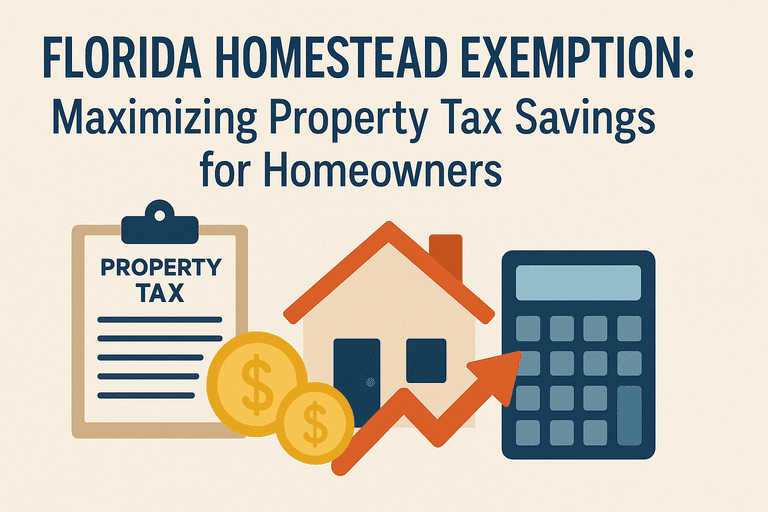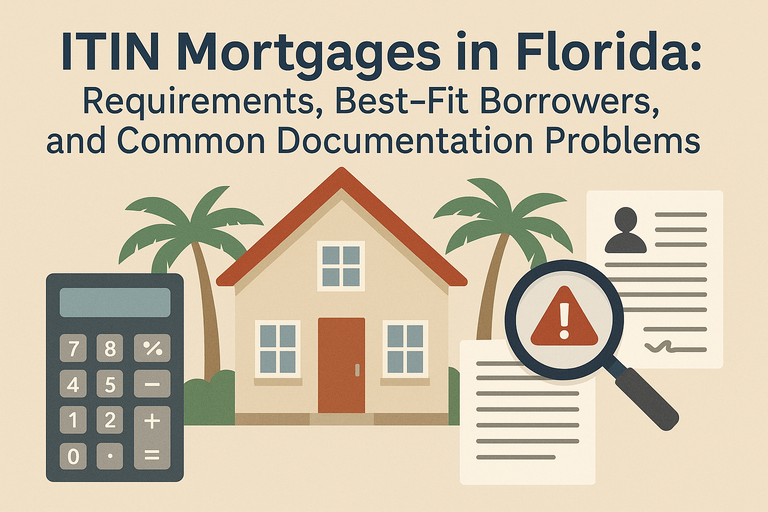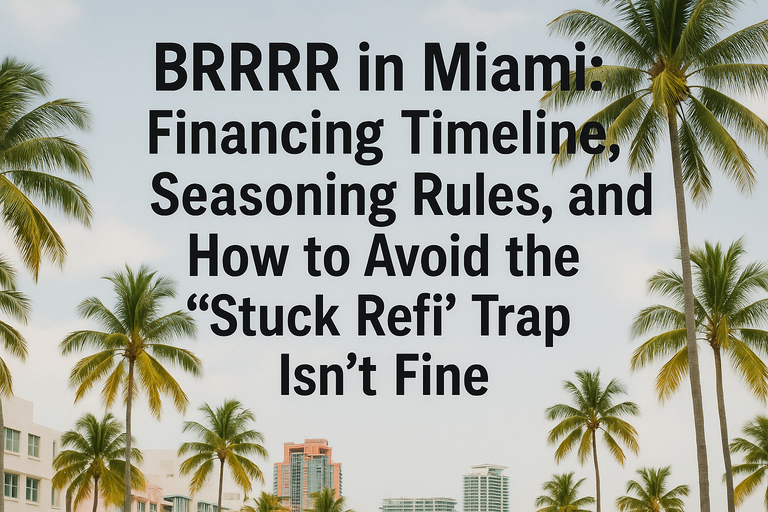Florida Homestead Exemption
For Florida homeowners, property taxes can be one of the largest ongoing expenses. Fortunately, the Florida Homestead Exemption offers significant relief by lowering the taxable value of a primary residence. By properly applying for this exemption, homeowners can save hundreds—or even thousands—of dollars annually while also enjoying legal protections that make homeownership more secure.
Understanding how the Florida Homestead Exemption works, who qualifies, and how to maximize its benefits is essential for any homeowner looking to reduce their tax burden.
What is the Florida Homestead Exemption?
The Florida Homestead Exemption is a property tax benefit that reduces the assessed value of a primary residence, lowering the homeowner’s annual property tax bill. This exemption is available to permanent Florida residents who own and occupy their home as their primary residence.
Key Benefits of the Florida Homestead Exemption
-
Property Tax Savings – The exemption reduces the taxable value by up to $50,000, directly lowering tax obligations.
-
Protection from Creditors – Under Florida law, the homestead property is protected from forced sale by creditors, with some exceptions.
-
Save Our Homes Cap – Annual increases in assessed value are capped at 3% or the rate of inflation, whichever is lower, protecting homeowners from sudden tax hikes in rising markets.
How Much Can You Save with the Florida Homestead Exemption?
The savings depend on your home’s assessed value and local millage rates. Here’s a breakdown:
-
First $25,000 Exemption – Applies to all property taxes, including school district taxes.
-
Second $25,000 Exemption – Applies to assessed values between $50,000 and $75,000 (excluding school taxes).
Example: If your home is assessed at $200,000, you may receive a $50,000 reduction, lowering the taxable value to $150,000. Depending on your county’s tax rate, this can save $750–$1,000 annually.
Eligibility Requirements for the Florida Homestead Exemption
To qualify for the exemption, you must meet the following:
-
Primary Residence – The property must be your permanent home.
-
Ownership – You must own the property as of January 1 of the tax year.
-
Application Deadline – File with your county property appraiser by March 1 each year.
-
Residency Proof – Provide documentation such as a Florida driver’s license, voter registration, or vehicle registration.
Filing for the Florida Homestead Exemption
Applying for the exemption is relatively straightforward but must be done correctly to avoid delays.
Step 1: Gather Required Documents
-
Florida driver’s license or state ID.
-
Florida vehicle registration.
-
Voter registration card (if applicable).
-
Recorded deed or tax bill.
Step 2: File with the County Property Appraiser
Applications can typically be submitted online, by mail, or in person at your county’s property appraiser office.
Step 3: Renew Automatically
Once approved, the exemption renews annually as long as the property remains your primary residence.
Additional Property Tax Benefits in Florida
Beyond the standard exemption, homeowners may qualify for additional benefits:
-
Senior Citizen Exemptions – Extra savings for residents over age 65 with limited income.
-
Disability Exemptions – Reductions for homeowners with permanent disabilities.
-
Veteran Exemptions – Special exemptions for disabled veterans and their surviving spouses.
-
Portability – Transfer your Save Our Homes benefit (up to $500,000) to a new primary residence within Florida.
Florida Homestead Exemption and Estate Planning
The exemption provides more than just tax savings—it also plays a role in estate planning:
-
Heirs’ Rights – Surviving spouses and minor children may be entitled to retain the homestead exemption.
-
Asset Protection – Homestead protection shields the property from most creditors, ensuring it remains within the family.
Common Mistakes Homeowners Make
-
Missing the Filing Deadline – Applications must be filed by March 1. Late applications may be denied.
-
Not Updating Residency Documents – Ensure all IDs and registrations reflect your Florida address.
-
Renting Out the Property – Turning your homestead into a rental may disqualify the exemption.
Conclusion: Maximize Your Savings with the Florida Homestead Exemption
The Florida Homestead Exemption is one of the most powerful tools available to homeowners, offering both financial savings and legal protections. By understanding the eligibility requirements, filing deadlines, and additional benefits, you can maximize your property tax savings while safeguarding your home for the future.
For personalized guidance on how the homestead exemption impacts your mortgage and tax planning, contact a trusted local expert like My Miami Mortgage Broker.






